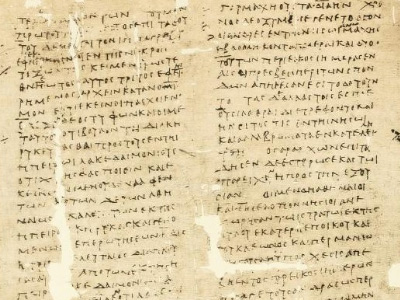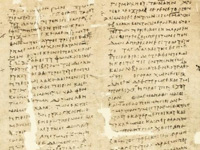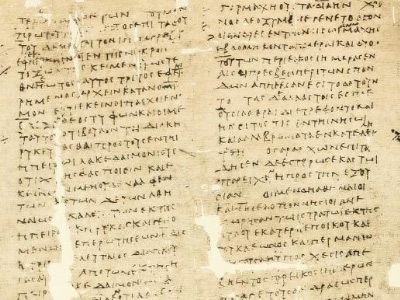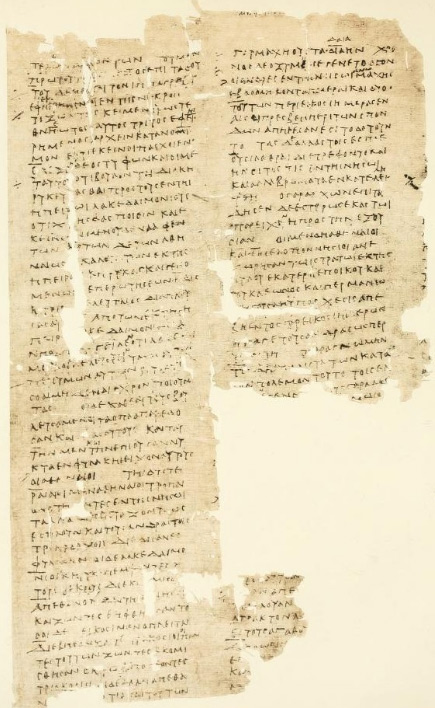Second Peloponnesian War (431-404 BC)

Prelude
As the preeminent Athenian historian, Thucydides, wrote in his influential History of the Peloponnesian War, "The growth of the power of Athens, and the alarm which this inspired in Lacedaemon, made war inevitable." Indeed, the nearly fifty years of Greek history that preceded the outbreak of the Peloponnesian War had been marked by the development of Athens as a major power in the Mediterranean world. Its empire began as a small group of city-states, called the Delian League—from the island of Delos, on which they kept their treasury—that came together to ensure that the Greco-Persian Wars were truly over. After defeating the Persian invasion of Greece in the year 480 BC, Athens led the coalition of Greek city-states that continued the Greco-Persian Wars with attacks on Persian territories in the Aegean and Ionia. What then ensued was a period, referred to as the Pentecontaetia (the name given by Thucydides), in which Athens increasingly became in fact an empire, carrying out an aggressive war against Persia and increasingly dominating other city-states. Athens proceeded to bring under its control all of Greece except for Sparta and its allies, ushering in a period which is known to history as the Athenian Empire. By the middle of the century, the Persians had been driven from the Aegean and forced to cede control of a vast range of territories to Athens. At the same time, Athens greatly increased its own power; a number of its formerly independent allies were reduced, over the course of the century, to the status of tribute-paying subject states of the Delian League. This tribute was used to support a powerful fleet and, after the middle of the century, to fund massive public works programs in Athens, causing resentment.
Friction between Athens and the Peloponnesian states, including Sparta, began early in the Pentecontaetia; in the wake of the departure of the Persians from Greece, Sparta attempted to prevent the reconstruction of the walls of Athens (without the walls, Athens would have been defenseless against a land attack and subject to Spartan control), but was rebuffed. According to Thucydides, although the Spartans took no action at this time, they "secretly felt aggrieved". Conflict between the states flared up again in 465 BC, when a helot revolt broke out in Sparta. The Spartans summoned forces from all of their allies, including Athens, to help them suppress the revolt. Athens sent out a sizable contingent (4,000 hoplites), but upon its arrival, this force was dismissed by the Spartans, while those of all the other allies were permitted to remain. According to Thucydides, the Spartans acted in this way out of fear that the Athenians would switch sides and support the helots; the offended Athenians repudiated their alliance with Sparta. When the rebellious helots were finally forced to surrender and permitted to evacuate the state, the Athenians settled them at the strategic city of Naupactus on the Corinthian Gulf.
In 459 BC, Athens took advantage of a war between its neighbors Megara and Corinth, both Spartan allies, to conclude an alliance with Megara, giving the Athenians a critical foothold on the Isthmus of Corinth. A fifteen-year conflict, commonly known as the First Peloponnesian War, ensued, in which Athens fought intermittently against Sparta, Corinth, Aegina, and a number of other states. For a time during this conflict, Athens controlled not only Megara but also Boeotia; at its end, however, in the face of a massive Spartan invasion of Attica, the Athenians ceded the lands they had won on the Greek mainland, and Athens and Sparta recognized each other's right to control their respective alliance systems. The war was officially ended by the Thirty Years' Peace, signed in the winter of 446/5 BC.
Breakdown of the peace
The Thirty Years' Peace was first tested in 440 BC, when Athens' powerful ally Samos rebelled from its alliance with Athens. The rebels quickly secured the support of a Persian satrap, and Athens found itself facing the prospect of revolts throughout the empire. The Spartans, whose intervention would have been the trigger for a massive war to determine the fate of the empire, called a congress of their allies to discuss the possibility of war with Athens. Sparta's powerful ally Corinth was notably opposed to intervention, and the congress voted against war with Athens. The Athenians crushed the revolt, and peace was maintained.
The more immediate events that led to war involved Athens and Corinth. After suffering a defeat at the hands of their colony of Corcyra, a sea power that was not allied to either Sparta or Athens, Corinth began to build an allied naval force. Alarmed, Corcyra sought an alliance with Athens, which after debate and input from both Corcyra and Corinth, decided to swear a defensive alliance with Corcyra. At the Battle of Sybota, a small contingent of Athenian ships played a critical role in preventing a Corinthian fleet from capturing Corcyra. In order to uphold the Thirty Years' Peace, however, the Athenians were instructed not to intervene in the battle unless it was clear that Corinth was going to press onward to invade Corcyra. However, the Athenian warships participated in the battle nevertheless, and the arrival of additional Athenian warships was enough to dissuade the Corinthians from exploiting their victory, thus sparing much of the routed Corcyraean and Athenian fleet.
Following this, Athens instructed Potidaea (Chalcidice peninsula), a tributary ally of Athens but a colony of Corinth, to tear down its walls, send hostages to Athens, dismiss the Corinthian magistrates from office, and refuse the magistrates that the city would send in the future. The Corinthians, outraged by these actions, encouraged Potidaea to revolt and assured them that they would ally with them should they revolt from Athens. Meanwhile, the Corinthians were unofficially aiding Potidaea by sneaking contingents of men into the besieged city to help defend it. This was a direct violation of the Thirty Years' Peace, which had (among other things) stipulated that the Delian League and the Peloponnesian League would respect each other's autonomy and internal affairs.
A further source of provocation was an Athenian decree, issued in 433/2 BC, imposing stringent trade sanctions on Megarian citizens (once more a Spartan ally after the conclusion of the First Peloponnesian War). It was alleged that the Megarians had desecrated the Hiera Orgas. These sanctions, known as the Megarian decree, were largely ignored by Thucydides, but some modern economic historians have noted that forbidding Megara to trade with the prosperous Athenian empire would have been disastrous for the Megarans, and have accordingly considered the decree to be a contributing factor in bringing about the war. Historians that attribute responsibility for the war to Athens cite this event as the main cause for blame.
At the request of the Corinthians, the Spartans summoned members of the Peloponnesian League to Sparta in 432 BC, especially those who had grievances with Athens to make their complaints to the Spartan assembly. This debate was attended by members of the league and an uninvited delegation from Athens, which also asked to speak, and became the scene of a debate between the Athenians and the Corinthians. Thucydides reports that the Corinthians condemned Sparta's inactivity up to that point, warning the Spartans that if they continued to remain passive while the Athenians were energetically active, they would soon find themselves outflanked and without allies. The Athenians, in response, reminded the Spartans of their record of military success and opposition to Persia, and warned them of the dangers of confronting such a powerful state, ultimately encouraging Sparta to seek arbitration as provided by the Thirty Years' Peace. Undeterred, a majority of the Spartan assembly voted to declare that the Athenians had broken the peace, essentially declaring war.
HISTORY

RESOURCES
This article uses material from the Wikipedia article "Second Peloponnesian War (431-404 BC)", which is released under the Creative Commons Attribution-Share-Alike License 3.0.
© Stories Preschool. All Rights Reserved.










